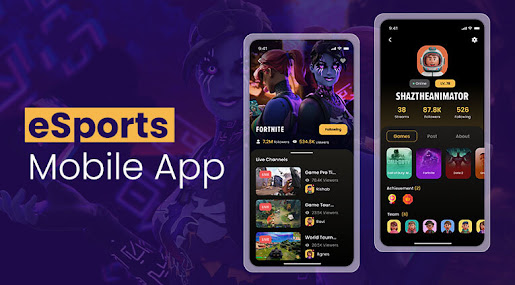"Empowering the Mobile Gaming Community: A Comprehensive Guide to Mobile Esports Tournament Platform Development"
The gaming landscape is undergoing a seismic shift, propelled by the meteoric rise of esports. Within this dynamic ecosystem, mobile gaming has emerged as a force to be reckoned with, captivating millions of players worldwide. As the popularity of mobile esports continues to soar, the need for robust tournament platforms to support competitive gaming experiences has become increasingly evident. In this comprehensive guide, we delve into the intricacies of mobile esports tournament platform development, exploring key features, development processes, monetization strategies, and future trends shaping the future of gaming.
Understanding Mobile Esports Tournaments:
Mobile esports tournaments represent the pinnacle of competitive gaming on handheld devices, where players compete against each other in a variety of genres, including MOBAs, battle royales, and strategy games. Unlike traditional esports tournaments, which are often associated with PC or console gaming, mobile esports tournaments present unique challenges and opportunities. These tournaments cater to a diverse audience of players, ranging from casual gamers to professional competitors, and require specialized platforms to facilitate seamless gameplay experiences.
Essential Features of Mobile Esports Tournament Platforms:
Building a successful mobile esports tournament platform requires a careful consideration of essential features tailored to the needs of players and organizers alike. From registration systems and matchmaking algorithms to tournament management tools and live streaming integration, each component plays a crucial role in delivering an immersive and engaging experience. User interface (UI) and user experience (UX) design are also paramount, ensuring intuitive navigation and seamless interactions for participants.
The Development Process of Mobile Esports Tournament Platforms:
Embarking on the journey of mobile esports tournament platform development requires a systematic approach encompassing planning, design, development, testing, and deployment phases. During the initial planning phase, developers must conduct thorough market research to identify target demographics, assess competitive landscape, and define project scope and objectives. Selecting the right technology stack and development frameworks is essential for building a scalable, secure, and efficient platform. Prototyping, testing, and iteration are integral components of the development process, allowing developers to refine features, address bugs, and optimize performance based on user feedback.
Monetization Strategies for Mobile Esports Tournament Platforms:
Monetizing mobile esports tournament platforms requires a careful balance between generating revenue and providing value to players and sponsors. Advertising, sponsorships, ticket sales, and in-app purchases are among the most common monetization models employed by platform developers. However, success in monetization hinges on understanding the unique preferences and behaviors of the target audience, as well as cultivating meaningful partnerships with brands and advertisers. Emerging trends such as virtual goods and non-fungible tokens (NFTs) present exciting opportunities for innovation in monetization strategies.
Overcoming Challenges in Mobile Esports Tournament Platform Development:
Despite the immense potential of mobile esports tournament platforms, developers often encounter a myriad of challenges throughout the development and deployment process. Technical limitations, regulatory compliance, community management, and player retention are among the most pressing concerns faced by developers and organizers. Overcoming these challenges requires a combination of technical expertise, strategic planning, and adaptability. By leveraging industry best practices, harnessing cutting-edge technologies, and fostering a supportive community, developers can navigate the complexities of mobile esports tournament platform development with confidence.
Future Trends and Innovations in Mobile Esports Tournament Platforms:
Looking ahead, the future of mobile esports tournament platforms promises to be filled with exciting innovations and advancements. As technology continues to evolve, we can expect to see integration with virtual reality (VR), augmented reality (AR), and artificial intelligence (AI) technologies, transforming the way players experience competitive gaming. The advent of 5G connectivity and cloud gaming also holds the potential to revolutionize the mobile esports landscape, enabling seamless multiplayer experiences and immersive gameplay on a global scale. By staying informed and adaptable, developers can position themselves at the forefront of these emerging trends, driving positive change and inclusivity within the gaming community.
Conclusion:
In conclusion, mobile esports tournament platform development represents a thrilling frontier in the ever-expanding world of gaming. By understanding the unique challenges and opportunities inherent in this burgeoning industry, developers can unlock new possibilities for innovation and growth. As mobile gaming continues to capture the hearts and minds of players around the world, the demand for sophisticated tournament platforms will only continue to rise. By embracing this evolution and leveraging the power of technology, we can empower the mobile gaming community and shape the future of competitive gaming for generations to come.




Dafabet India provides safe sports betting and casino games. Register at dafa247official today for exciting bonuses, trusted play and big wins.
ReplyDelete